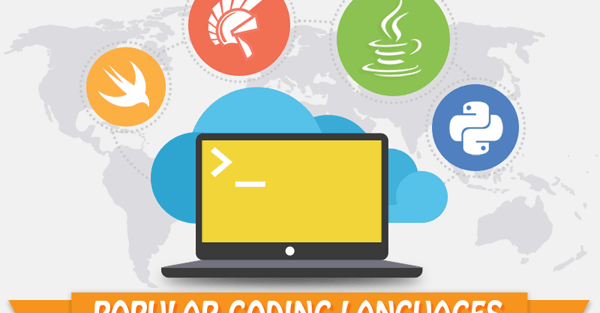Introduction:
Selecting the appropriate web development language is a pivotal decision for anyone embarking on a digital project. With a multitude of programming languages available, each offering distinct features and capabilities, making the right choice can significantly impact the success of your endeavor. In this comprehensive guide, we’ll explore the key considerations when choosing a web development language and delve into the characteristics of some of the most popular options.
Understanding the Significance of Choosing the Right Language: The choice of a web development language shapes the foundation of your project. It determines how efficiently your website or application performs, its scalability, and the ease with which developers can work on it. Therefore, understanding the significance of this decision is crucial.
Factors to Consider When Choosing a Web Development Language:
Project Requirements: Your project’s specific requirements should drive the choice of a programming language. For instance, if you’re building a data-heavy application, a language like Python known for its data manipulation capabilities may be ideal. However, if your focus is on interactive and responsive web design, JavaScript could be the go-to choice.
Developer Expertise: The proficiency of your development team plays a pivotal role. Choosing a web development language that your developers are well-versed in can expedite development and reduce the learning curve. On the other hand, if you’re starting from scratch and have the flexibility to choose, consider a language with a large talent pool, making it easier to find skilled developers.
Performance and Speed: Depending on your project’s scale and complexity, performance considerations vary. Languages like C++ and Rust are renowned for their speed and efficiency, making them suitable for resource-intensive applications. In contrast, languages like PHP may be better suited for smaller websites and blogs.
Ecosystem and Libraries: A thriving ecosystem with extensive libraries and frameworks can significantly ease development. For example, Python offers a rich ecosystem for data science and machine learning, while JavaScript’s extensive library, Node.js, makes it a strong choice for server-side development.
Community Support: Consider the size and activity of the language’s developer community. A robust community ensures continuous updates, security patches, and access to a wealth of resources and expertise.
Exploring Popular Web Development Languages:
JavaScript: JavaScript is a versatile, front-end language known for its compatibility with all major web browsers. It powers interactive web pages and is commonly used with frameworks like React and Angular. JavaScript is an excellent choice for dynamic, client-side development.
Python: Python is celebrated for its readability and ease of use. It excels in data analysis, artificial intelligence, and web development. Popular frameworks like Django and Flask simplify web development tasks, making Python a favored choice for diverse projects.
Ruby: Ruby is renowned for its elegant syntax and productivity. Ruby on Rails, its flagship framework, is highly regarded for rapid application development. Ruby’s focus on developer happiness and convention-over-configuration principles make it an attractive option for startups and small teams.
PHP: PHP is a server-side scripting language primarily used for web development. It’s known for its speed and versatility, powering a significant portion of the web. WordPress, a leading content management system, relies on PHP, making it a natural choice for bloggers and businesses.
Java: Java offers cross-platform compatibility and robust performance. It’s widely used in enterprise-level applications, Android app development, and large-scale systems. Java’s strong type system and extensive libraries are assets for complex projects.
Making Your Decision: The choice of a web development language should align with your project’s unique requirements and the expertise of your development team. Take time to assess the factors outlined above, experiment with different languages and frameworks, and seek advice from experienced developers. Remember that there’s no one-size-fits-all answer, but a well-informed decision will pave the way for a successful and efficient web development journey.
Conclusion:
Choosing the right web development language is a strategic decision that can significantly impact the success of your digital project. By considering project requirements, developer expertise, performance needs, ecosystem support, and community backing, you can make an informed choice. The world of web development is vast and diverse, offering numerous languages, each with its unique strengths. Whether you opt for JavaScript’s versatility, Python’s simplicity, Ruby’s elegance, PHP’s speed, or Java’s robustness, your choice should reflect your project’s vision and objectives.

